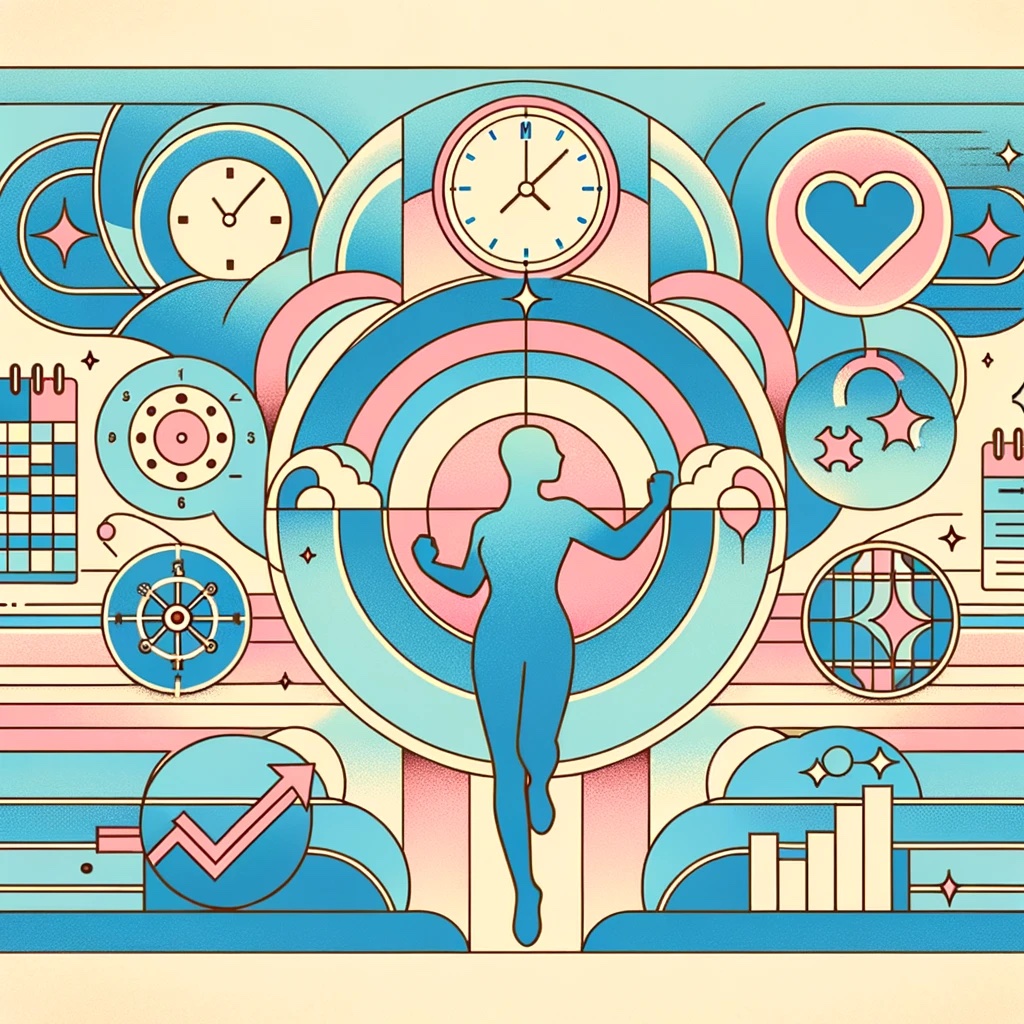Feeling down – whether it’s a bout of the blues, stress and overwhelm, or something more serious like depression – can sap your motivation and make productivity feel impossible. Tasks that usually feel easy become monumental. But sometimes, we have to push through for the sake of school, work, or basic life responsibilities. Let’s explore ways to navigate these tough times without completely burning out with various tips for productivity when feeling down.
Understanding the Productivity Challenge
When feeling down, it’s not laziness or lack of willpower; it’s your brain and body reacting to distress. Consider these factors:
- Reduced focus and concentration: When your mind is preoccupied with negative thoughts or you’re feeling emotionally depleted, it’s much harder to sustain focus.
- Decision fatigue: Feeling down saps your mental energy, making even the smallest decisions feel overwhelming.
- Physical symptoms: Low mood or depression can come with physical manifestations like fatigue, brain fog, or changes in appetite, further hindering productivity.
Redefining Productivity
On these days, the goal shouldn’t be peak performance. Instead, think of productivity as any action that moves you a little bit forward or prevents backsliding. Here’s how to adjust:
- The “Good Enough” Mindset: Embrace the idea of doing just enough to get by. Perfectionism is your enemy when feeling down.
- Celebrate Tiny Wins: Acknowledging the completion of even small tasks helps you feel accomplished and bolsters motivation.
- Prioritize Self-Care as Productivity: Taking time for rest, healthy food, and activities that support your emotional well-being are crucial investments that will pay off.
Practical Strategies
- Break It Down: Chop big tasks into ridiculously small steps. Instead of “clean the house”, it’s “wash 5 dishes,” then “put away clothes on the chair,” etc.
- The 5-Minute Rule: Commit to working on something for just 5 minutes. Often, the hardest part is just starting. This trick can get you rolling.
- Pomodoro Technique: Use a timer for focused work blocks (25 mins is standard) followed by short breaks. This builds focus and prevents burnout.
- Prioritize the Essentials: On bad days, focus on non-negotiables. Can the laundry wait until tomorrow? Probably. Will skipping a shower worsen your mood? Maybe!
- Outsource & Ask for Help: If financially feasible, delegate chores. Don’t be afraid to ask a loved one for help with a specific task or even just some company while you work.
Managing Your Environment
- Minimize Distractions: Put your phone away, close unnecessary tabs, find a quiet spot if possible. Less external stimulation makes it easier for your brain to focus.
- Uplifting Surroundings: A little clutter might be unavoidable, but try to tidy at least your immediate workspace. Some fresh flowers or a scented candle can make a huge difference.
- Natural Light & Fresh Air: Sunlight helps regulate mood, and even a few minutes by an open window can be refreshing.
Self-Compassion is Key
- Acknowledge Your Feelings: Trying to push down how you feel will backfire. Say it out loud: “I’m feeling really down and unmotivated today.”
- Adjust Expectations: Be kind to yourself. You’re not going to function at your usual capacity, and that’s okay.
- Reward & Rest: Remember to congratulate yourself for getting things done, and schedule conscious breaks for activities that recharge you, even if it’s just 10 minutes with a relaxing book.
When Productivity Isn’t an Option
There will be days when doing anything at all feels impossible. If this happens:
- Radical Acceptance: Trying to fight against it may worsen your mood. Give yourself permission for a day of pure rest.
- The Bare Minimum: Focus on the absolute essentials for survival – eating something, basic hygiene, taking any prescribed medication.
- Reach Out: Let a trusted friend or family member know you’re having a really hard time. A listening ear can make all the difference.
Important Reminder: If you’re struggling with persistent low mood, significant loss of function, or thoughts of self-harm, please seek professional help. These strategies are not a substitute for therapy or treatment.





0 Comments